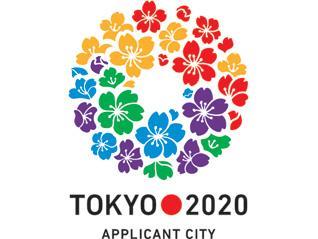Tokyo wins race to host 2020 Olympic Games

Japanese capital beats Madrid and Istanbul after prime minister Shinzo Abe flew in to reassure voters over Fukushima
Tokyo has won the race to host the 2020 Olympic Games after the Japanese prime minister flew in to personally reassure voters that radioactive leaks from the Fukushima power plant would not create a health risk
The intervention from Shinzo Abe helped the Japanese capital defeat Madrid and Istanbul in the race to host the Games after a campaign in which each of the three faced major economic or political challenges. A princess who rarely leaves Japan and a promise to combine fiscal responsibility with a passionate welcome also helped Tokyo win after two previous consecutive bid failures.
There was drama when Madrid and Istanbul tied in the first round of voting, forcing a tie break among the 94 voters that ended with a narrow victory for the Turkish city. That left Tokyo's "safe pair of hands" up against Istanbul's expansive vision to unite east and west on the banks of the Bosphorus in the final round of voting, with the Japanese bid winning comprehensively by 60 votes to 36.
IOC president Jacques Rogge, who will stand down on Tuesday after 12 years, congratulated Tokyo on its "excellent bid" and "comprehensive" victory. The Japanese capital, which last hosted the Games in 1964, had been the favourite to win during a turbulent bidding race in which the chances of the three candidates waxed and waned at various points.
"Here in Buenos Aires, we have received many voices of support and felt the passion from people in Japan. I am overjoyed to learn that our dream has come true," said Tokyo governor and bid chairman Naoki Inose.
Abe declared himself happier than when he was elected. "The moment of truth is coming and we'd like to do our best to live up to your expectations," he said.
The eruption of joy and tears from the Tokyo team in Buenos Aires, and the hundreds of Japanese media, was in stark contrast to the despair felt on the streets of Madrid and among the Istanbul delegation.
Some supporters of the Spanish bid were furious. Tennis player Feliciano Lopez said it was a "disgraceful decision" that showed the IOC had "no regard for fair play and values all other interests above sport".
A combination of its promise to provide a safe harbour in turbulent economic times was considered a vote winner for Tokyo, but it was also able to demonstrate that its Games would be a passionate and fun-filled affair in an emotional final presentation.
Previous Tokyo bids had been lauded for their practicality but lacked the warmth that propelled London's legacy-centric pitch to victory in 2005 and Rio to success in 2009. On both occasions, Tokyo also bid.
Going into the last week, Tokyo was the strong favourite but its chances were undermined by ill-timed reports of new leaks at the power plant in Fukushima that was hit by the 2011 earthquake and tsunami.
On the back foot, the delegation was considered slow to respond, while Madrid seized the momentum through the charm of Crown Prince Felipe and its pitch to hold a low-cost Games in austere times. But Abe dealt with the issue head on and insisted "emphatically and unequivocally" that the radiation leaks had been contained and would pose no health risk.
"I ask you read through the headlines and appraise the true situation," he said. "There have been no health-related problems, nor will there be in the future. I shall take responsibility."
Abe charmed the IOC members with his memories of the opening ceremony of the 1964 Games, seen as a key moment in Japan's postwar history, and assurances the bid was economically sound. He said afterwards that staging the Games would allow Japan to repay the world for the assistance it gave the country in the wake of the natural disaster.
Tokyo's presentation began with a surprise – the appearance of Princess Takamado, a Cambridge-educated member of the royal family who rarely leaves the country for reasons of protocol. She was followed by Paralympic long jumper Mami Sato, whose home town was hit by the tsunami, and powerfully described the power of sport to inspire. Sato, who lost her right leg to cancer at 19, described how 200 athletes visited areas affected by the tsunami to visit thousands of children. "What we have seen is the impact of the Olympic values as never before in Japan. And what the country has witnessed is that those precious values – excellence, friendship and respect – can be so much more than just words," she said.
Madrid attempted to trump Tokyo's royal card with one of its own but was narrowly defeated in a shock first round result. Prince Felipe, who competed as a sailor at the 1992 Barcelona Games, repeated the mantra that Madrid's bid "made sense" because 80% of the venues were already built.
All three bidding cities replicated to a greater or lesser extent the model minted by London in Singapore in 2005, combining photogenic sports stars, a delegation of young people and glossy films designed to underscore ambition and certainty. But all faced major issues. Tokyo had to reassure voters in the face of alarming headlines about radioactive leaks, Madrid had to convince that its broken economy would not hobble its plans and Istanbul faced a string of problems including the reaction to the Taksim Square protests and a spate of doping scandals.
The Turkish prime minister, Recep Tayyip Erdogan, attempted to convince the IOC members that they should bring the event to "the land of youth in the city of tolerance and peace" for a Games that would "truly embody the human spirit", but to no avail.
Source: The Guardian
